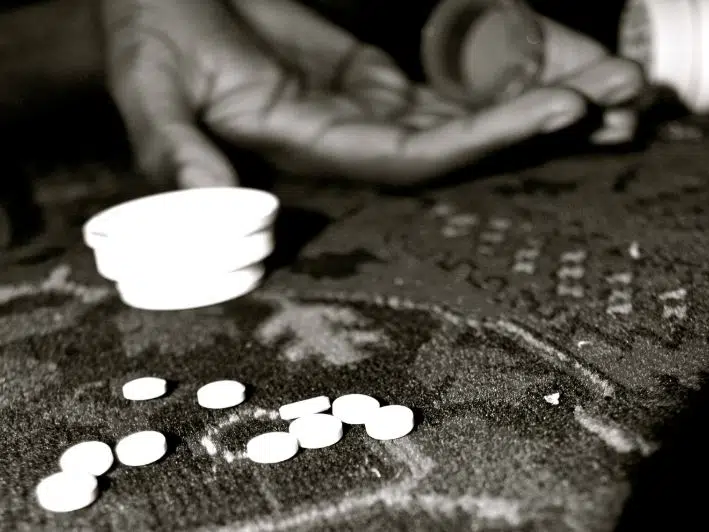
A peer clinical advisor with the BC Centre on Substance Use says he experienced six overdoses in his lifetime, and considers himself lucky to still be alive.
Guy Felicella says this is not a new crisis, noting governments past and present are all responsible for not having a strong plan to prevent overdoses from happening in the first place.
“Does anyone care that people are dying at these unprecedented rates? Does anyone care about the trauma experienced by people who use drugs, and those who work on the front lines?” he said, as the BC Coroners Service announced 175 overdose deaths across the province in July – the third straight month with more than 170 overdose deaths.
“Does anyone care that each time someone turns to the street drug supply that they are doing so knowing that this could be the end?”
Felicella says government needs to offer a safe supply of drugs to help get people off the toxic supply that is on the streets across the province.
“Every hour of every day our failed policies are forcing people to play Russian Roulette, only the odds are growing against them,” he added. “It’s not just a single bullet in the chamber, its a full chamber, and our bad policies are holding the gun.”
He says if we let the spike in deaths become the new normal, we are telling people that some lives matter more than others.
“And we need our leaders to demonstrate the compassion that Dr. Bonnie Henry is always asking us to demonstrate for COVID-19 and the impacts of that demonstrate the same compassion and empathy for those experiencing problematic substance use, or those who are using substances,” he said.
“Punitive measures are not helpful. Shunning people is not helpful. So what we’re looking for is acknowledgement that this is a medical issue, and all of the support that everybody in a position of influence can provide to help those in our communities experiencing problematic substance use.”
There have been 909 overdose deaths in B.C. through the first seven months this year, including
“If hydromorphone is our answer, then we’re failing miserably,” he said. “And if it’s not working, then we need to try something. Because if we don’t try, the people die.”
In a statement, Minister of Mental Health and Addictions Judy Darcy says B.C. has increased its response to overdose deaths since the start of the COVID-19 pandemic.
“Since March, we have introduced new guidance to give people access to a safe supply of prescription medications, doubled the number of youth treatment beds in the province, invested $10.5 million to increase the number of overdose prevention sites (including inhalation sites and supplies), provided more outreach teams, enabled registered nurses to help implement the safe supply guidance, invested $16 million in the creation of more bed-based treatment and recovery services,” she said.
“We have also partnered with the federal government to support innovative harm reduction programs and supported or enhanced 16 substance-use integrated teams to make sure that people who connect with the health-care system stay connected,” she added.
Premier John Horgan previously noted that he supports the move by the Canadian Association of Chiefs of Police who are calling for the decriminalization of simple possession of illicit drugs for personal use.
B.C. has been under a public health emergency because of the overdose crisis since 2016.
“This health emergency continues to take a tragic toll on people from all walks of life and in all communities of the province,” Chief Coroner Lisa Lapointe added. “Access to key harm-reduction services in the midst of a dual health emergency has been a challenge, and the extreme concentration of the illicit fentanyl being trafficked is resulting in deaths within moments of use.”














